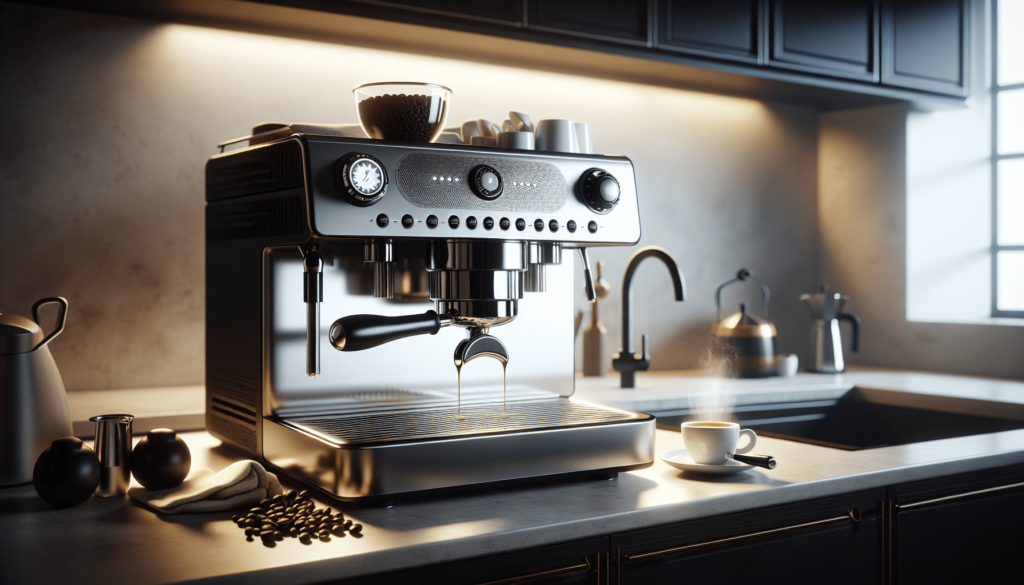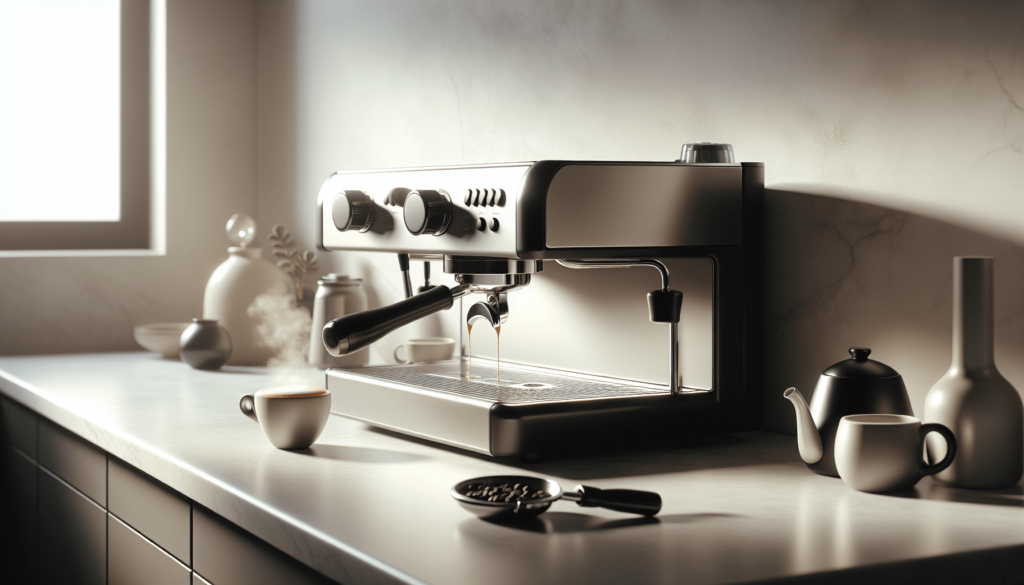How long does an espresso maker last? It’s a common question that many coffee enthusiasts ask, and for a good reason. An espresso maker is a vital appliance for anyone who loves brewing coffee at home, and understanding its lifespan can help you make the most of your investment.

What Factors Influence the Lifespan of an Espresso Maker?
Several factors can impact how long your espresso maker will last. These include the type of machine, usage frequency, maintenance, and even the quality of the water you use. Let’s break these down one by one to give you a clearer picture.
Type of Espresso Maker
Espresso machines come in various types—manual, semi-automatic, automatic, and super-automatic. The craftsmanship and complexity of these machines can affect their longevity.
| Type of Espresso Maker | Expected Lifespan |
|---|---|
| Manual | 15-20 years |
| Semi-Automatic | 10-15 years |
| Automatic | 7-10 years |
| Super-Automatic | 5-7 years |
Manual espresso machines often last the longest, primarily because they have fewer electronic components that can fail. Conversely, super-automatic machines might have a shorter lifespan due to their complexity and the number of moving parts.
Usage Frequency
How often you use your espresso machine plays a significant role. A machine used multiple times a day will wear out faster than one used occasionally. A commercial-grade machine designed for heavy use might withstand frequent use better, but it’s essential to follow manufacturer guidelines for maintenance.
Water Quality
The quality of water you use can dramatically affect the lifespan of your espresso machine. Hard water causes mineral buildup, which can clog and damage internal components over time. Using filtered water can help reduce these issues.
Regular Maintenance
Proper maintenance is crucial for extending the life of your espresso maker. Regular cleaning, descaling, and timely replacement of worn-out parts can keep your machine in top shape. Failure to maintain the machine can lead to a buildup of coffee oils, minerals, and other residues, which can ultimately affect performance and longevity.
How to Maintain Your Espresso Maker for Longevity
Maintaining your espresso maker is not overly complicated, but it does require some diligence. Here are some tips to help you keep your machine running smoothly for years to come.
Daily Cleaning
After each use, it’s essential to clean the portafilter, group head, and steam wand. This prevents coffee grounds and oils from building up, which could clog the machine and affect the taste of your coffee.
Weekly Maintenance
Once a week, you should backflush your espresso machine using a cleaner designed for espresso machines. This process cleans the group head and removes any residual coffee oils and particles.
Monthly Descaling
Descaling is crucial to remove mineral buildup inside the machine. You can use a descaling solution or follow the manufacturer’s recommendations for DIY methods. Make sure to follow the guidelines precisely to avoid damaging the machine.
Changing the Water Filter
If your machine has a water filter, changing it regularly can help reduce mineral buildup and improve the taste of your espresso. Most manufacturers recommend replacing the filter every two to three months, depending on how often you use the machine.
Replacing Worn-Out Parts
Mechanical parts wear out over time, and electrical components may fail. Regularly inspect your machine and replace any worn-out parts, such as gaskets, seals, and screens, to keep it running efficiently.
Signs Your Espresso Maker Needs Replacing
Even the best-maintained espresso maker will eventually need to be replaced. Here are some signs that it might be time to invest in a new machine.
Inconsistent Temperature
Temperature is crucial for brewing a perfect shot of espresso. If you notice that your machine’s temperature fluctuates or it has trouble maintaining a consistent temperature, it might be on its last legs.
Poor Pressure
The pressure is another critical factor in brewing espresso. If your machine struggles to build or maintain the proper pressure, it’s a sign that something is wrong. This could be due to a failing pump or a clogged system.
Leaks
Leaks can be a sign of worn-out gaskets, seals, or other components. While some leaks can be repaired, persistent issues may indicate that it’s time for a new machine.
Increased Noise
Espresso machines naturally make some noise, but if you notice an increase in noise levels or new, unusual sounds, it could be a sign of mechanical failure.
Deteriorating Coffee Quality
If you’ve maintained your machine but notice that your espresso tastes off, it might be time for a replacement. Over time, wear and tear can affect the machine’s performance, leading to poor-quality coffee.
Choosing a New Espresso Maker
When it’s time to replace your old machine, selecting the right espresso maker can be overwhelming. Here are some factors to consider to ensure you get the best machine for your needs.
Budget
Your budget is a significant factor. While more expensive machines often offer better durability and features, you can still find reliable options if you’re on a tighter budget. Research different models within your price range and read reviews to find a machine that offers the best value for the money.
Machine Type
Determine which type of espresso machine suits your lifestyle best. Manual machines offer more control but require a level of expertise. Semi-automatic and automatic machines offer a good balance between ease of use and control. Super-automatic machines are the easiest to use but may lack customization options.
Features
Consider the features you need. Do you want a built-in grinder? How important is programmability to you? Think about what features will enhance your coffee-making experience and look for machines that offer them.
Brand Reputation
Some brands have a reputation for longevity and reliability. Research different brands and read customer reviews to get a sense of which ones have the best track records.
Warranty
The warranty can be an indicator of the manufacturer’s confidence in their product. A more extended warranty period generally suggests a more durable and reliable machine.

Extending the Life of Your New Espresso Maker
Once you’ve chosen a new espresso maker, implementing some best practices can help extend its lifespan.
Use Quality Water
As mentioned earlier, using filtered water can prevent mineral buildup and reduce wear on your machine. Investing in a good water filtration system can pay off in the long run.
Regular Maintenance
Stick to a regular maintenance schedule. Daily cleaning, weekly backflushing, and monthly descaling are crucial for keeping your machine in top shape.
Timely Repairs
Address issues as soon as they arise. Small problems can become significant if left unchecked. If you’re not comfortable performing repairs yourself, contact a professional.
Proper Storage
If you need to store your espresso machine for an extended period, make sure to clean and dry it thoroughly before packing it away. Store it in a cool, dry place to prevent damage.
FAQs About Espresso Maker Lifespan
How Long Does a Commercial Espresso Machine Last?
Commercial machines are built to withstand heavy use and can last between 7 to 12 years with proper maintenance. Regular servicing by professionals is crucial for these machines to reach their full potential lifespan.
Can I Extend the Lifespan of My Espresso Maker by Using It Less Frequently?
Using your espresso maker less frequently can reduce wear and tear, but neglecting regular maintenance and proper storage can still lead to issues. It’s essential to maintain the machine properly, regardless of how often you use it.
Is It Worth Repairing an Old Espresso Maker?
Whether it’s worth repairing an old espresso machine depends on the cost of repairs and the overall condition of the machine. If the repair costs are close to or exceed the price of a new machine, it might be more economical to replace it.
How Often Should I Service My Espresso Maker?
For home espresso machines, a yearly professional service can help maintain optimal performance. For commercial machines, more frequent servicing, such as every six months, is recommended due to higher usage rates.
Does the Grind of Coffee Affect the Lifespan of My Espresso Machine?
Using a consistent and appropriate coffee grind for your machine is crucial. A grind that is too fine can cause clogging, while a grind that is too coarse can affect pressure. Both scenarios can put extra strain on the machine, potentially reducing its lifespan.
Conclusion
Understanding how long an espresso maker lasts and what factors influence its lifespan can help you make informed decisions. By choosing the right machine, maintaining it properly, and knowing when to replace it, you can enjoy delicious espresso at home for years to come. Remember, regular maintenance is key to maximizing the longevity of your espresso maker, regardless of its type or how often you use it. Enjoy your coffee journey and make the most of your espresso machine!
